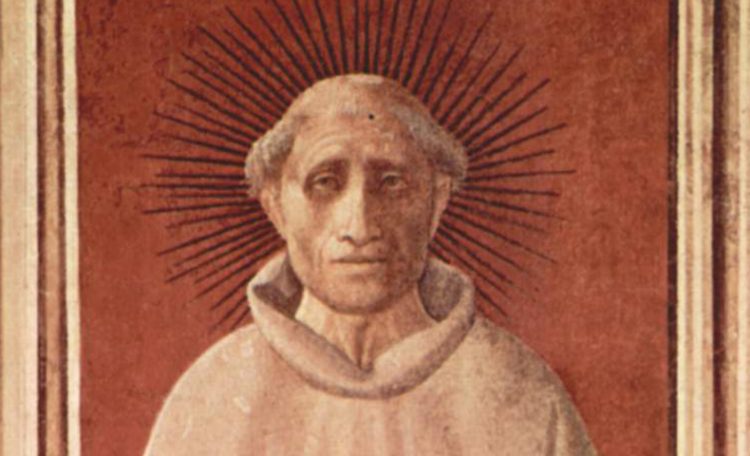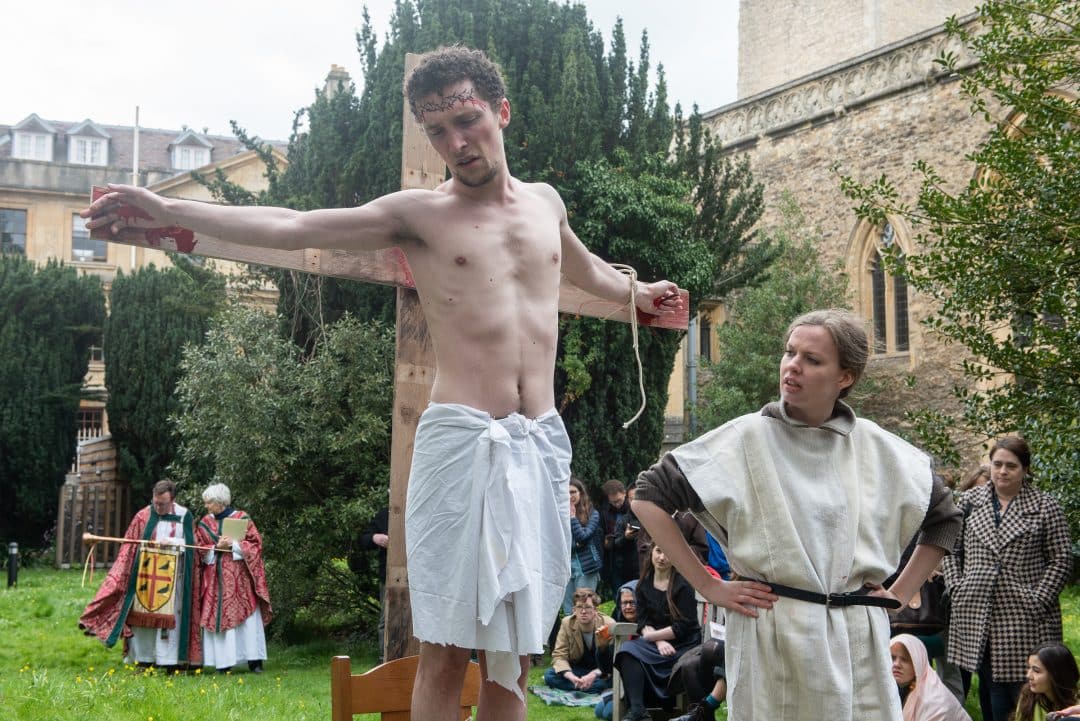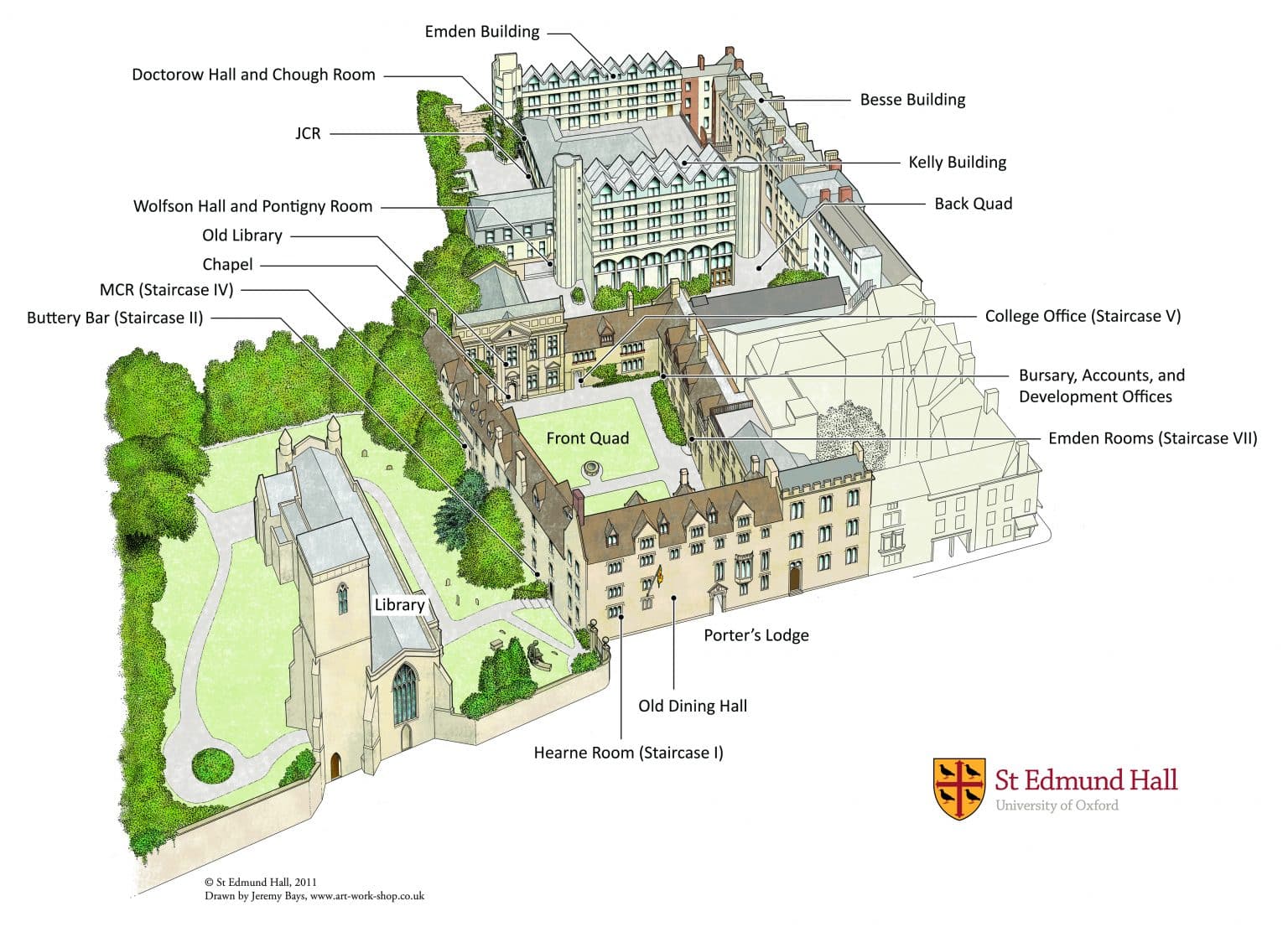Lamentation

- Location: Churchyard
- Time: 3:15pm
- Performers: Medieval Italian Reading Group (@BibituraDantis)
Cast
Messenger – Jonny Wiles
Mary – Rebecca Bowen
Jesus – Liam McDonnell
Crowd – Lachlan Hughes (and others)
Summary of the Play
Jacopone da Todi’s lauda drammatica ‘Donna de Paradiso’ depicts Mary’s lament over the dying Christ. It begins with a messenger (often identified as John the Apostle) confronting Mary and telling her of Judas’ betrayal and Jesus’ subsequent capture. Mary hastens to the foot of the cross and finds Jesus being crucified. The lauda finishes with Christ’s death and Mary’s heartfelt lament.
The Text and Translation
This play will be performed in Italian. Please see below for the text, and an English translation.
«Donna de Paradiso,
lo tuo figliolo è preso
Iesù Cristo beato.
Accurre, donna e vide
che la gente l’allide;
credo che lo s’occide,
tanto l’ho flagellato»
«Como essere porria,
che non fece follia,
Cristo, la spene mia,
om l’avesse pigliato?».
«Madonna, ello è traduto,
Iuda sì ll’à venduto;
trenta denar’ n’à auto,
fatto n’à gran mercato».
«Soccurri, Madalena,
ionta m’è adosso piena!
Cristo figlio se mena,
como è annunzïato».
«Soccurre, donna, adiuta,
cà ’l tuo figlio se sputa
e la gente lo muta;
òlo dato a Pilato».
«O Pilato, non fare
el figlio meo tormentare,
ch’eo te pòzzo mustrare
como a ttorto è accusato».
«Crucifige, crucifige!
Omo che se fa rege,
secondo la nostra lege
contradice al senato».
«Prego che mm’entennate,
nel meo dolor pensate!
Forsa mo vo mutate
de que avete pensato».
«Traiàn for li latruni,
che sian soi compagnuni;
de spine s’encoroni,
ché rege ss’è clamato!».
«O figlio, figlio, figlio,
figlio, amoroso giglio!
Figlio, chi dà consiglio
al cor me’ angustïato?
Figlio occhi iocundi,
figlio, co’ non respundi?
Figlio, perché t’ascundi
al petto o’ sì lattato?».
«Madonna, ecco la croce,
che la gente l’aduce,
ove la vera luce
déi essere levato».
«O croce, e que farai?
El figlio meo torrai?
E que ci aponerai,
che no n’à en sé peccato?».
«Soccurri, plena de doglia,
cà ’l tuo figliol se spoglia;
la gente par che voglia
che sia martirizzato».
«Se i tollit’el vestire,
lassatelme vedere,
com’en crudel firire
tutto l’ò ensanguenato».
«Donna, la man li è presa,
ennella croc’è stesa;
con un bollon l’ò fesa,
tanto lo ’n cci ò ficcato.
L’altra mano se prende,
ennella croce se stende
e lo dolor s’accende,
ch’è plu multiplicato.
Donna, li pè se prènno
e clavellanse al lenno;
onne iontur’ aprenno,
tutto l’ò sdenodato».
«Et eo comenzo el corrotto;
figlio, lo meo deporto,
figlio, chi me tt’à morto,
figlio meo dilicato?
Meglio aviriano fatto
ch’el cor m’avesser tratto,
ch’ennella croce è tratto,
stace descilïato!».
«O mamma, o’ n’èi venuta?
Mortal me dà’ feruta,
cà ’l tuo plagner me stuta
ché ’l veio sì afferato».
«Figlio, ch’eo m’aio anvito,
figlio, pat’e mmarito!
Figlio, chi tt’à firito?
Figlio, chi tt’à spogliato?».
«Mamma, perché te lagni?
Voglio che tu remagni,
che serve mei compagni,
ch’êl mondo aio aquistato».
«Figlio, questo non dire!
Voglio teco morire,
non me voglio partire
fin che mo ’n m’esc’el fiato.
C’una aiàn sepultura,
figlio de mamma scura,
trovarse en afrantura
mat’e figlio affocato!».
«Mamma col core afflitto,
entro ’n le man’ te metto
de Ioanni, meo eletto;
sia to figlio appellato.
Ioanni, èsto mea mate:
tollila en caritate,
àginne pietate,
cà ’l core sì à furato».
«Figlio, l’alma t’è ’scita,
figlio de la smarrita,
figlio de la sparita,
figlio attossecato!
Figlio bianco e vermiglio,
figlio senza simiglio,
figlio e a ccui m’apiglio?
Figlio, pur m’ài lassato!
Figlio bianco e biondo,
figlio volto iocondo,
figlio, perché t’à el mondo,
figlio, cusì sprezzato?
Figlio dolc’e piacente,
figlio de la dolente,
figlio àte la gente
mala mente trattato.
Ioanni, figlio novello,
morto s’è ’l tuo fratello.
Ora sento ’l coltello
che fo profitizzato.
Che moga figlio e mate
d’una morte afferrate,
trovarse abraccecate
mat’e figlio impiccato!».
Ed. Franco Mancini (1974)
Jacopone da Todi, The Lament of the Virgin
Messenger: Lady, Queen of Heaven, they have taken your son;
Hurry, come and see—they’re beating Him,
Whipping Him brutally; they will kill Him.
Mary: How can this be? My son, who has done no wrong,
My hope—how could they have taken Him?
Messenger: Judas betrayed Him for thirty pieces of silver;
For him, a good business deal.
Mary: Magdalene, help! Help me—Oh, the anguish!
They have taken him prisoner, just as I was told.
Messenger: Lady, Queen of Heaven, come rescue Him,
Quick, they’re spitting on Him;
Now they’re taking Him before Pilate.
Mary: Pilate, I beseech you, do Him no harm;
I can show you that those who accuse Him lie.
Crowd: Crucify Him, crucify Him! According to our law
He who claims to be king must be punished.
Mary: Listen to me, I beg of you, look at me.
Have you ever seen any suffering like mine?
Will you not be moved to pity?
Crowd: Bring out two thieves to be His companions;
Crown the pretender, crown Him with thorns!
Mary: My Son, my Son, my Son, my loving lily,
Who can console me in my anguish?
Son whose gentle eyes once smiled on me,
Why do you not answer me?
Why hide from the mother who nursed You?
Messenger: Lady, here is the cross
On which they will raise
The true Light of the world.
Mary: O cross, will you take my son from me?
And what will you accuse Him of,
Since he has done no wrong?
Messenger: Hurry, O sorrowful one,
They’re stripping your son;
They will nail Him to the cross.
Mary: If they have stripped Him of His garments,
Let me then see His bloody wounds!
Messenger: Lady, they’ve taken one of His hands,
Pressed it against the cross,
And the nail has ripped through the flesh.
They’ve taken the other hand,
Stretched it out on the cross,
And the pain spreads and grows.
Lady, they’ve taken His feet
And nailed them to the tree;
They have broken all His bones and joints.
Mary: Oh let me begin to chant the dirge,
My son has been taken from me.
O Son, my fair Son,
Who was it that killed You?
Oh, that they had ripped out my heart,
That I might not see Your torn flesh
Hanging from the cross!
Jesus: Mother, why have you come?
Your agony and tears crush Me;
To see you suffer so will be My death.
Mary: My anguish is not without cause;
O my Son, Father and Spouse,
Who was it wounded and stripped You?
Jesus: Mother, weep no more; stay and help
Those dear to Me, the friends I leave behind.
Mary: Son, do not ask this of me; let me die with You.
Let me breathe my last here at Your side.
A common grave for son and mother,
Since ours is a common agony.
Jesus: Mother, My heart in tears, I commend you into the hands
Of John, My chosen one; call him your son.
John, here is My mother, take her with love;
Have pity on her, they have pierced her heart.
Mary: My Son, You have breather Your last;
Son of a mother frightened and dazed,
Son of a mother destroyed by grief,
Tortured, tormented Son!
Son without peer, fair and rosy-cheeked,
To whom shall I turn now that You have left me?
Why did the world so despise You?
Gentle and sweet Son, Son of a sorrowful mother,
How cruelly You have been treated!
John, my new son, your brother is dead:
They have killed both mother and son,
One cruel death for both,
Embracing each other and their common cross!
Trans. Serge and Elizabeth Hughes (1982), adapted Lachlan Hughes
Watch Performance
To watch all the performances please visit the YouTube playlist by clicking the link below.

Performance Locations
Hover over a location marker for performance times and links to additional information.
